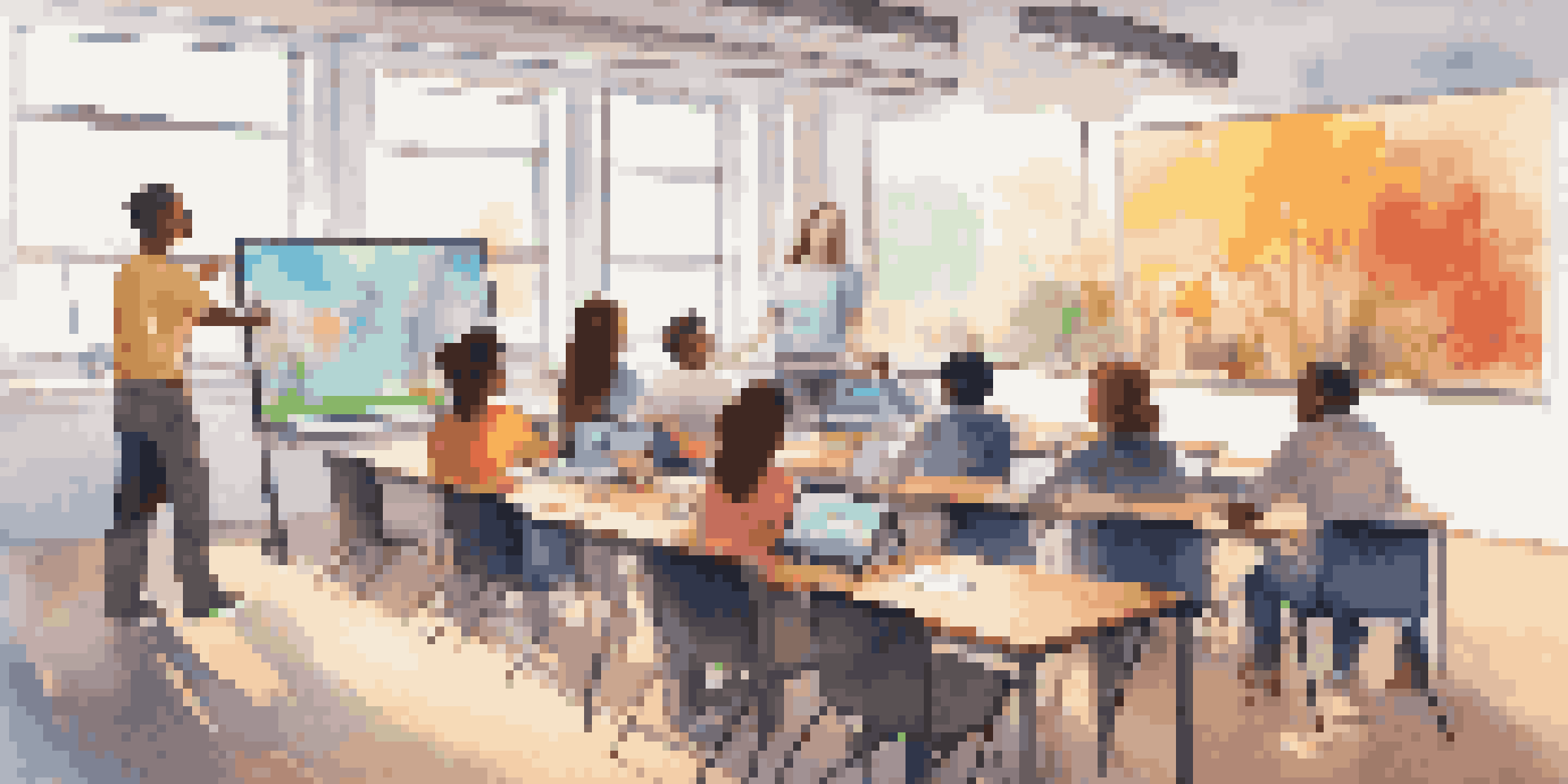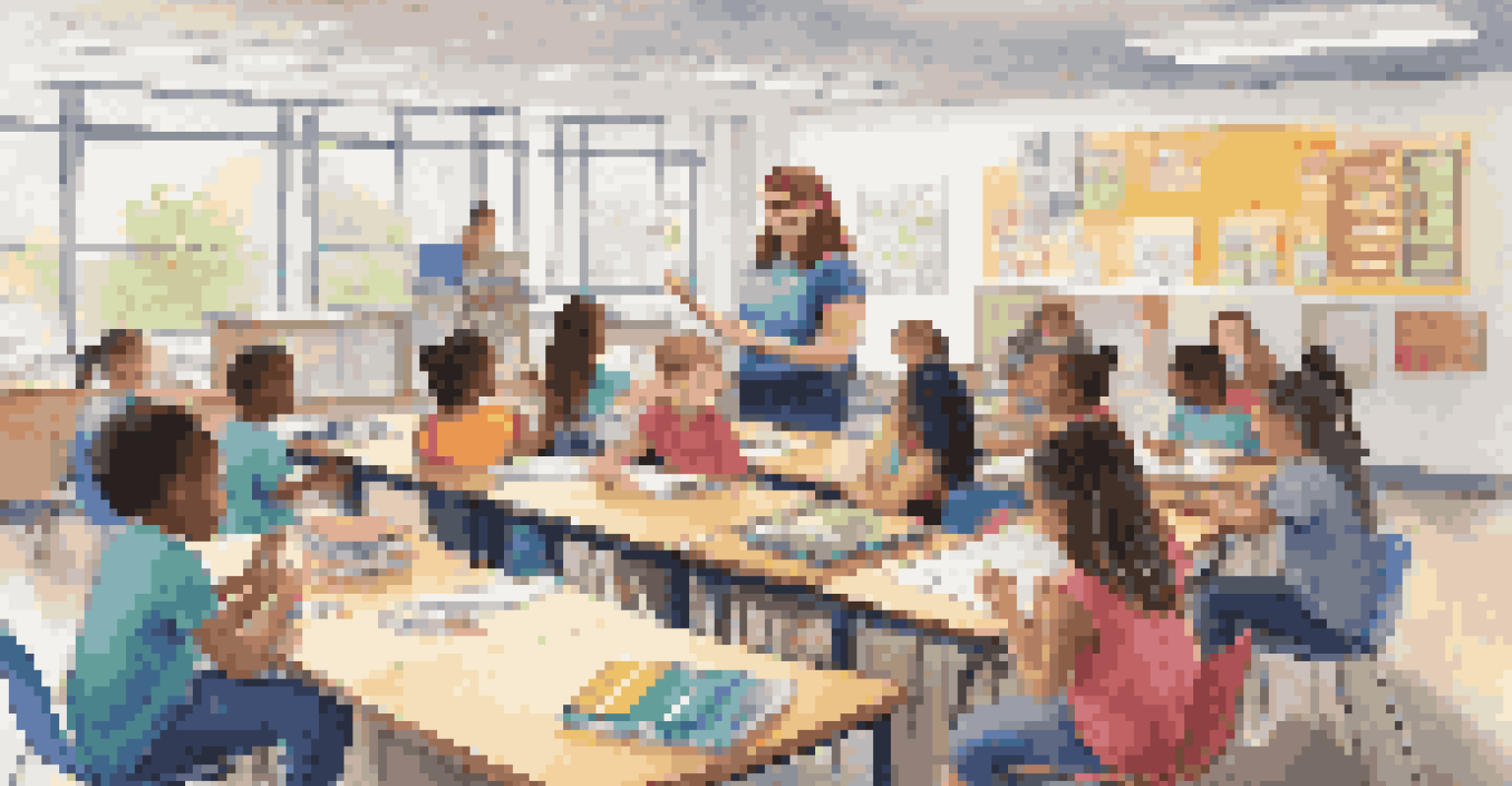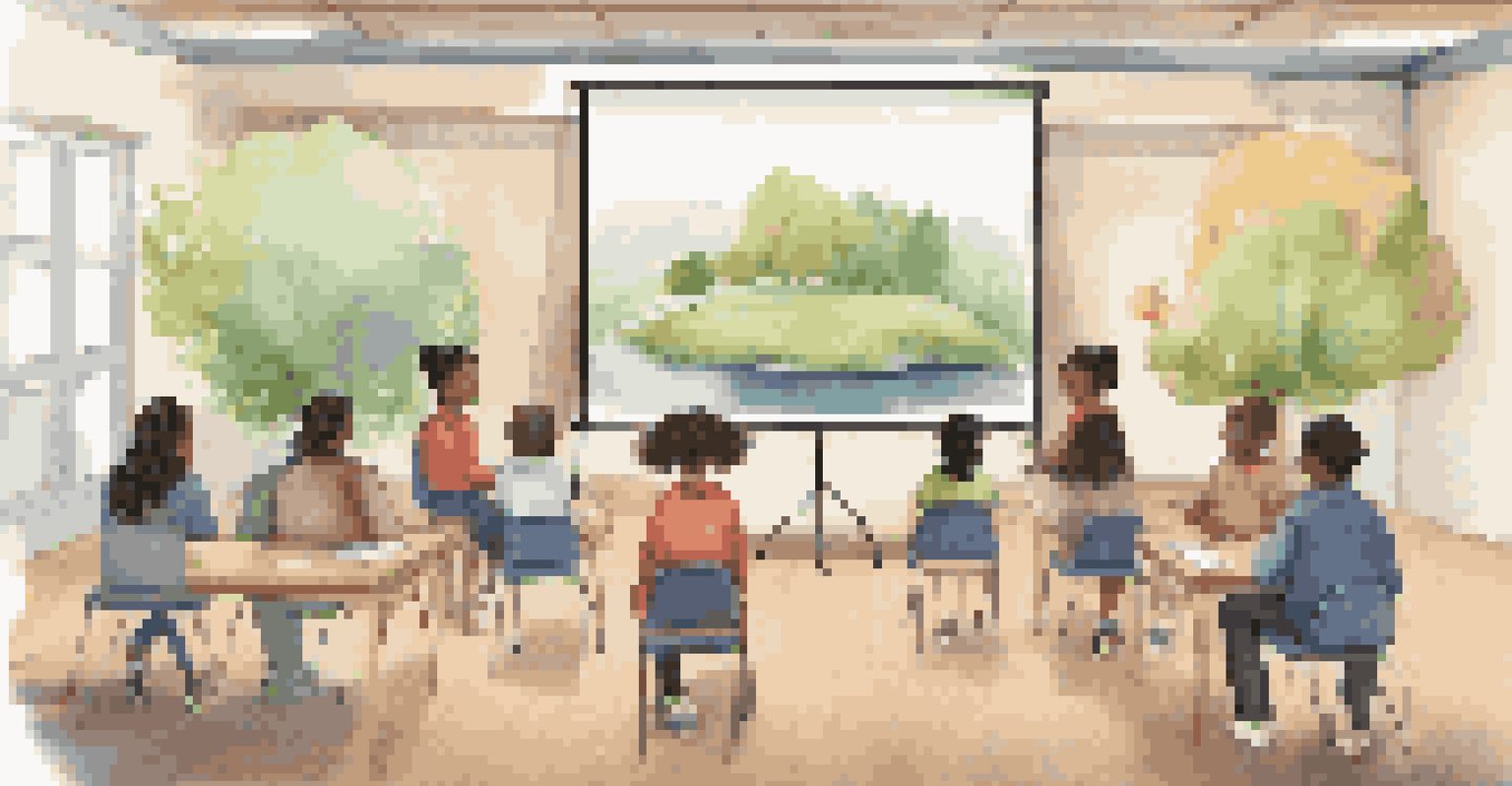The Shift in Educator Responsibilities in Digital Learning Era

Understanding the Shift in Educator Roles
As we dive into the digital learning era, it's crucial to grasp how the role of educators is evolving. No longer are teachers just sources of information; they are now facilitators of learning experiences. This shift requires educators to adapt to new technologies and approaches that engage students in a virtual environment.
Education is not the filling of a pail, but the lighting of a fire.
With the rise of online classes and digital tools, educators are tasked with curating content that resonates with students. They must balance traditional teaching methods with innovative strategies that foster collaboration and critical thinking. This transformation is not just about using new tools; it's about rethinking how we engage learners.
Ultimately, this shift in responsibilities means that educators must continuously learn and innovate alongside their students. They are not just teaching; they are learning to teach differently, which can be both challenging and rewarding.
The Importance of Technological Proficiency
In the digital learning era, technological proficiency is no longer optional for educators; it’s essential. Teachers must be well-versed in various educational technologies, from Learning Management Systems (LMS) to interactive tools that enhance student engagement. This proficiency allows them to create a dynamic virtual classroom.

Moreover, understanding the technology helps educators troubleshoot issues that may arise during lessons, ensuring a smoother learning experience. When teachers are comfortable with the tools they use, it also instills confidence in students who may be navigating these platforms for the first time.
Evolving Role of Educators
Educators are transitioning from information providers to facilitators of engaging and innovative learning experiences.
As a result, educators become guides, helping students harness the power of technology for their learning journey. This transformation requires ongoing professional development and a willingness to adapt to new advancements in the field.
Creating Engaging Online Learning Environments
One of the primary responsibilities of educators today is to create engaging online learning environments. Unlike traditional classrooms, virtual spaces require a different approach to keep students motivated and involved. This might involve using multimedia resources, interactive discussions, and collaborative projects.
The future belongs to those who believe in the beauty of their dreams.
Educators are now tasked with designing lessons that not only convey information but also inspire creativity and critical thinking. They must find ways to encourage participation and make learning feel personal, even through a screen. This can include using breakout rooms for small-group discussions or incorporating gamified elements to make learning fun.
By focusing on engagement, educators can foster a sense of community among students, even if they are miles apart. This sense of belonging is vital for maintaining student morale and ensuring they feel supported in their educational journey.
Facilitating Personalized Learning Experiences
In the digital learning landscape, personalization is key to student success. Educators now have the opportunity to cater to individual learning styles and paces, utilizing data and analytics to tailor their teaching methods. This approach enables students to take ownership of their learning.
By assessing student progress through online assessments and feedback, educators can identify areas of strength and those needing improvement. This insight allows them to adjust their instruction, providing additional resources or alternative methods to ensure every student can thrive.
Importance of Technological Skills
Technological proficiency is essential for educators to effectively navigate digital tools and enhance student engagement.
Personalized learning not only boosts academic performance but also enhances student engagement. When learners feel that their unique needs are being met, they are more likely to stay motivated and invested in their education.
Emphasizing Social-Emotional Learning
As educators navigate the digital landscape, social-emotional learning (SEL) has become increasingly important. Educators are now responsible for addressing not only academic needs but also the emotional well-being of their students. This involves creating a supportive environment where students feel safe to express themselves.
In a digital setting, fostering connections can be challenging, but it's vital for student success. Educators can implement strategies like virtual check-ins, peer mentorship programs, or mindfulness activities to nurture a sense of belonging and community among students.
By prioritizing SEL, educators help students develop resilience, empathy, and communication skills—qualities that are essential for success in and out of the classroom. This holistic approach to education allows students to thrive academically while also becoming well-rounded individuals.
Collaboration and Community Building Among Educators
In the era of digital learning, collaboration among educators has taken on new significance. Teachers are no longer isolated in their classrooms; instead, they are part of a broader community that shares resources, strategies, and support. This collaboration is crucial for adapting to the rapidly changing educational landscape.
Online platforms and social media have made it easier for educators to connect, share experiences, and learn from one another. By participating in online forums or professional learning communities, teachers can gain fresh insights and ideas that enhance their teaching practices.
Focus on Personalized Learning
Personalized learning approaches enable educators to tailor instruction to individual student needs, boosting engagement and success.
Collaborating not only benefits individual educators but also enriches the learning experiences of their students. When teachers learn from each other, they can implement best practices that foster a more effective and engaging digital learning environment.
The Role of Continuous Professional Development
As the digital learning era continues to evolve, so too must the professional development of educators. Continuous learning is essential to stay abreast of new technologies, teaching strategies, and educational research. This commitment to growth ensures that educators can meet the ever-changing needs of their students.
Professional development can take many forms, from online courses to webinars and virtual conferences. Engaging in these opportunities not only enhances educators’ skills but also reinforces their confidence in navigating the digital classroom.

Ultimately, ongoing professional development empowers educators to provide high-quality education in a digital format. By investing in themselves, they are better equipped to inspire and support their students on their learning journeys.